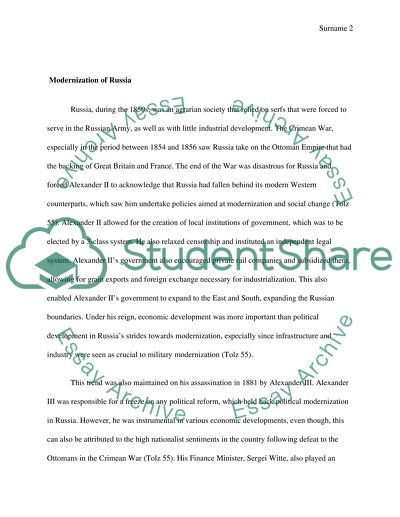Cite this document
(“Part B:How significant was the role of individuals in the making of Essay”, n.d.)
Retrieved from https://studentshare.org/history/1640382-part-bhow-significant-was-the-role-of-individuals-in-the-making-of-modern-russia-in-the-years-1854-to-1964
Retrieved from https://studentshare.org/history/1640382-part-bhow-significant-was-the-role-of-individuals-in-the-making-of-modern-russia-in-the-years-1854-to-1964
(Part B:How Significant Was the Role of Individuals in the Making of Essay)
https://studentshare.org/history/1640382-part-bhow-significant-was-the-role-of-individuals-in-the-making-of-modern-russia-in-the-years-1854-to-1964.
https://studentshare.org/history/1640382-part-bhow-significant-was-the-role-of-individuals-in-the-making-of-modern-russia-in-the-years-1854-to-1964.
“Part B:How Significant Was the Role of Individuals in the Making of Essay”, n.d. https://studentshare.org/history/1640382-part-bhow-significant-was-the-role-of-individuals-in-the-making-of-modern-russia-in-the-years-1854-to-1964.


